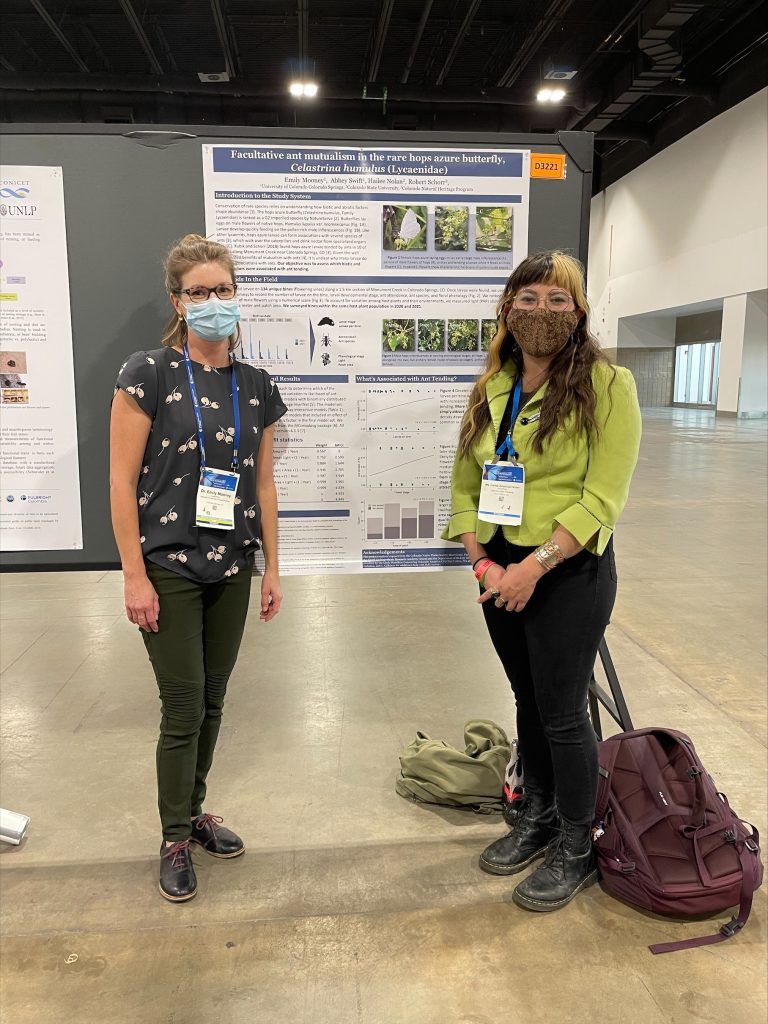The Celastrina Project
Oh, the beer and butterfly story, but it really is so much more.
The Beginning
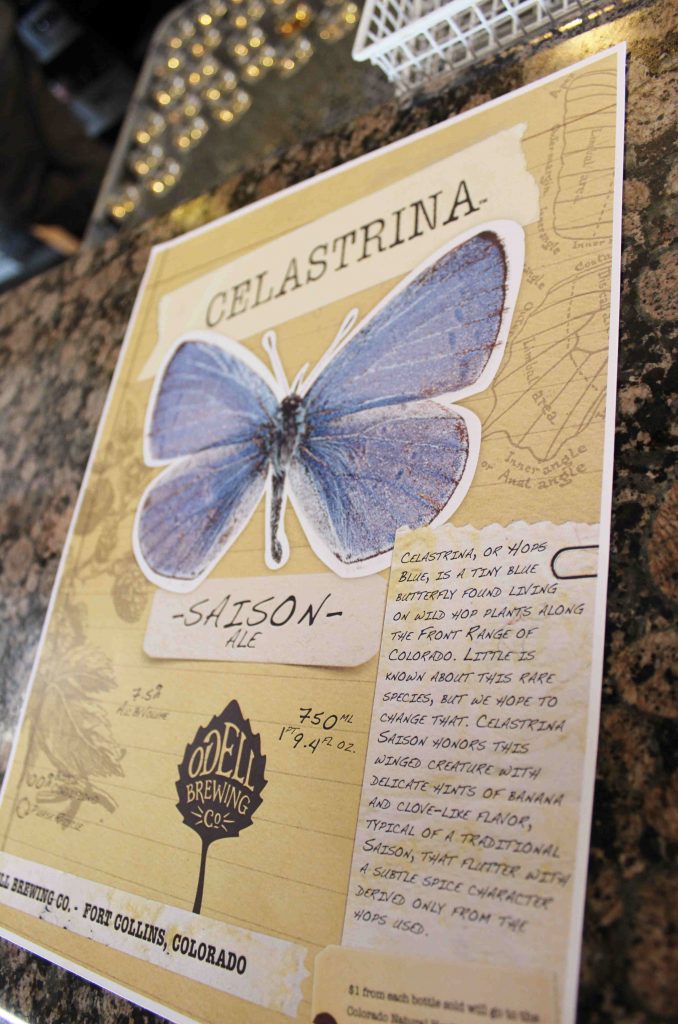
As a mammalogist I frequently have my nose pointed toward the ground looking for traps, but on an occasion in 2011, when I peered above the dense mat of riparian vegetation I was fighting through, I saw a small blue butterfly that seemed to be hovering around wild hops. Knowing there were reports of a rare butterfly called the hops blue, I called my colleague over to verify what I was looking at. Well, after confirmation and a few after-hours beers discussing how to fund studies of rare invertebrates, our hops-infused ideas turned to breweries.
Pushing the idea, I approached Odell Brewing Company and they eagerly collaborated on a beer called Celastrina Saison. Odell graciously rewarded the idea with a donation…but it was a donation far exceeding our expectations, which we greatly appreciated, but allowed even more beer-induced creativity. These funds went on to start the early beginnings of an undergraduate lab that would study rare and lesser-known Colorado species (URLIC).
The Linda S. Hamilton “Conserving Colorado” Award
One of the early champions of such a research endeavor was Linda S. Hamilton. An alumna of Warner College of Natural Resources, Linda generously lent her voice to our crowd-sourcing efforts (below) , and supported it through her own generosity.
She liked the idea so much she started an endowment that now carries her name and provides stipends for undergraduate researchers executing their own conservation research.
URLIC Alum
Callie Puntenney (2014)
Occupancy modeling of the hops blue butterfly (Celastrina humulus)
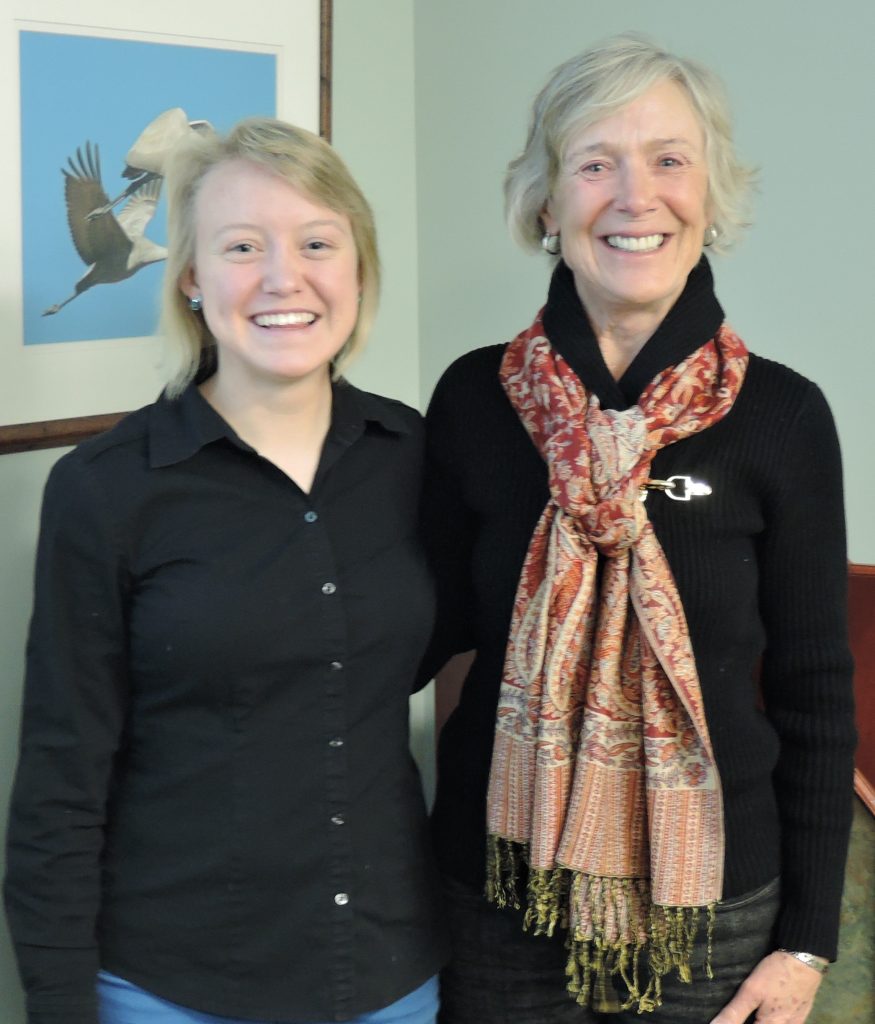
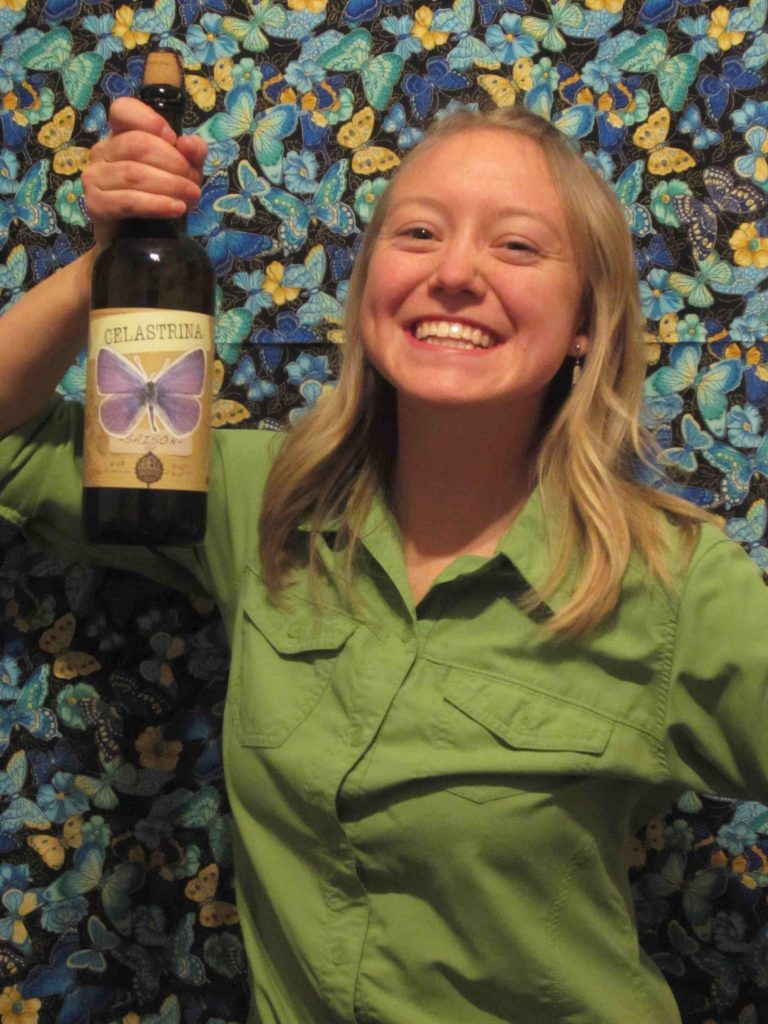
Callie with her commemorative Celatrina Saison bottle. 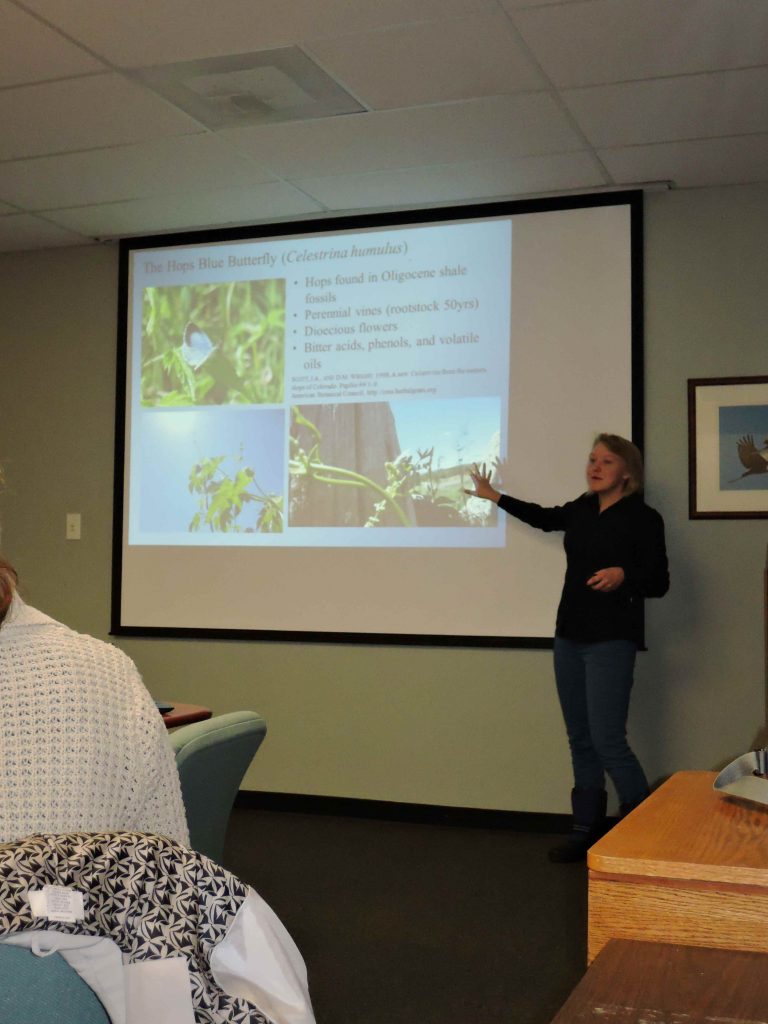
Callie presenting her research
Rachel Maison (2015)
Celastrina humulus (hops blue butterfly) occupancy at teh U.S. Air Force Academy, Colorado Springs, Colorado
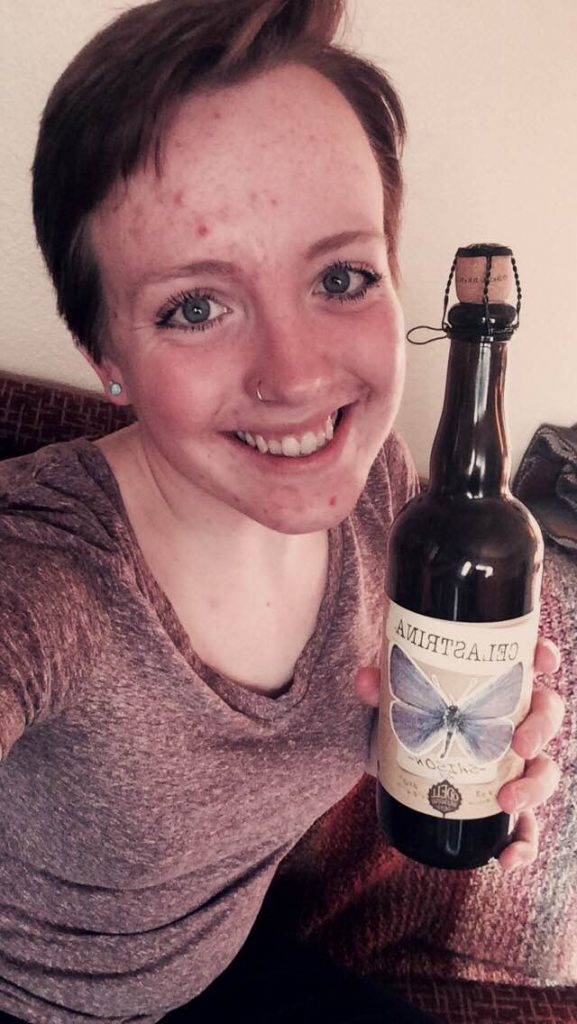
Blaise Newman (2016)
Fluorescent powder tracking as a possible technique to understand Preble’s meadow jumping mouse microsite habitat use
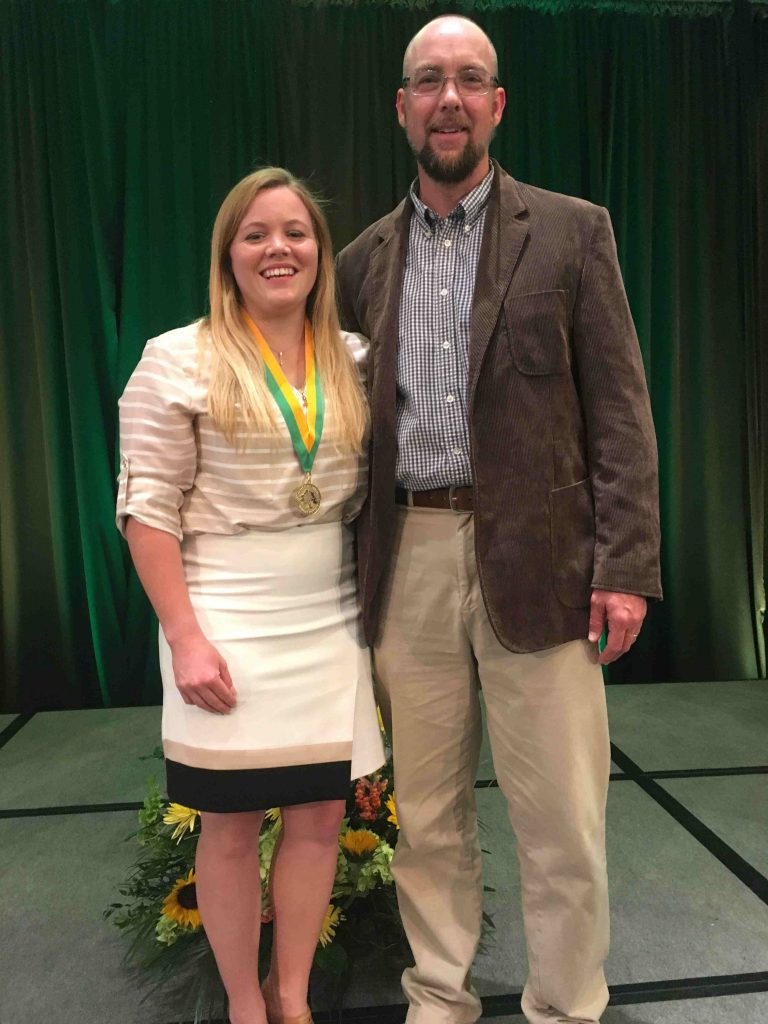
Blaise and Rob at the Honors Ceremony CSU. 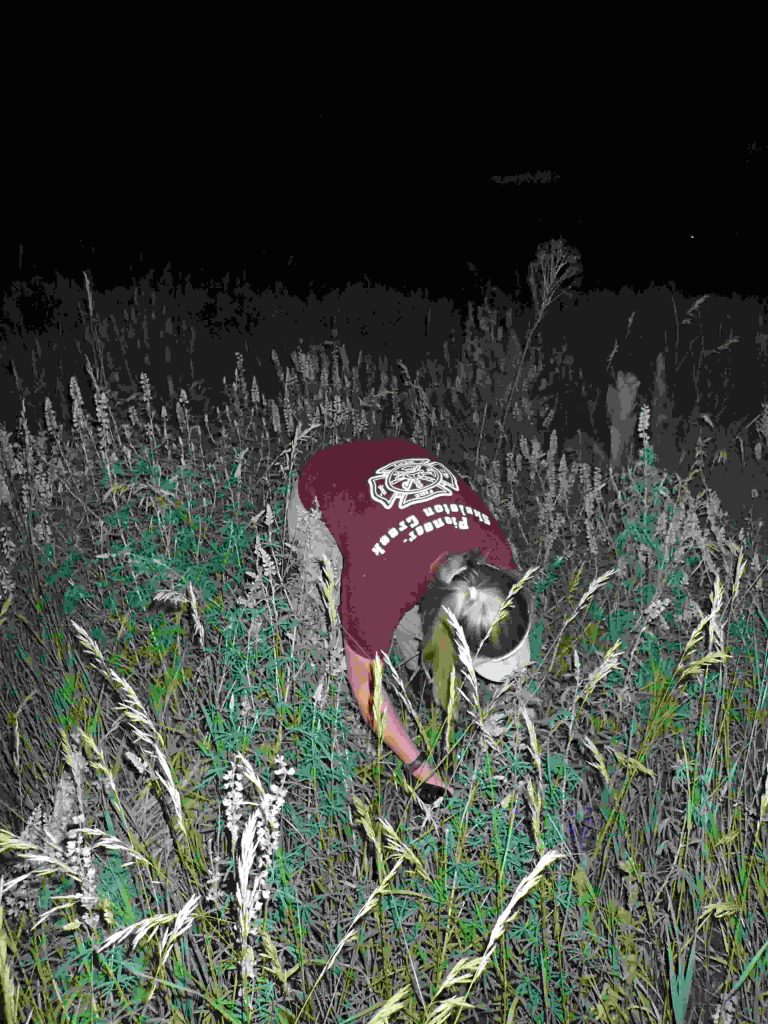
Blaise conducting her fieldwork.
Tristan Kubik (2016)
Facultative myrmecophily in the hops blue butterfly (are hops blue butterfly larvae tended by ants?)
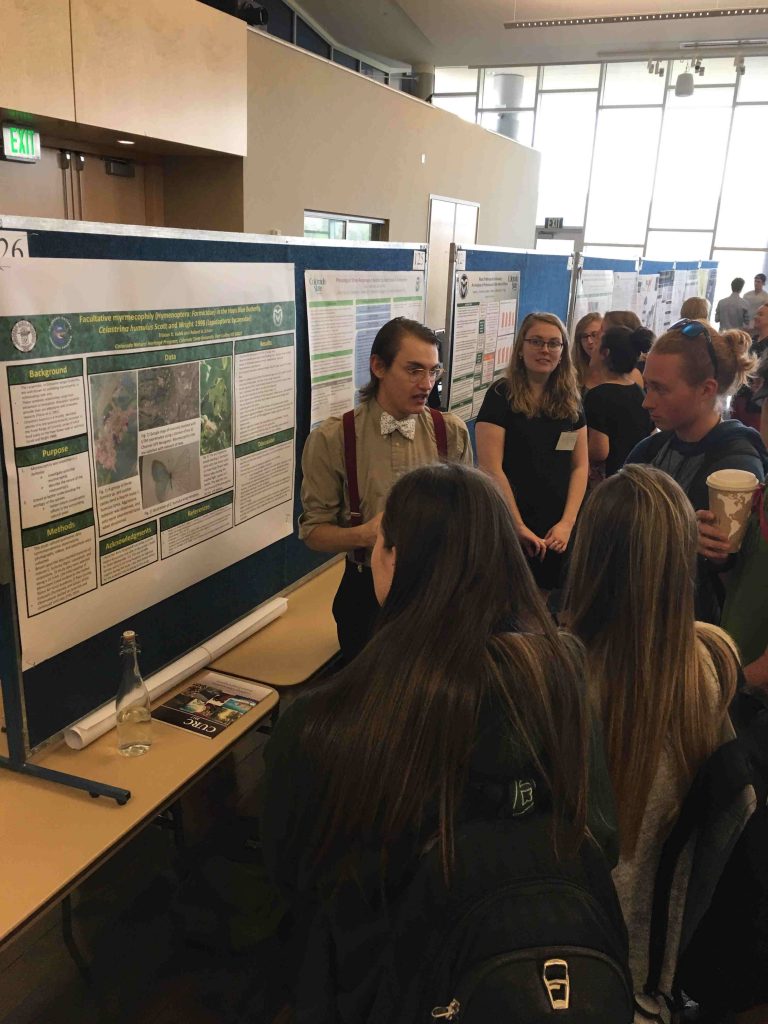
Tristan talking about his research at the Celebrate Undergraduate Research and Creativity symposium. Photograph by Rob Schorr. 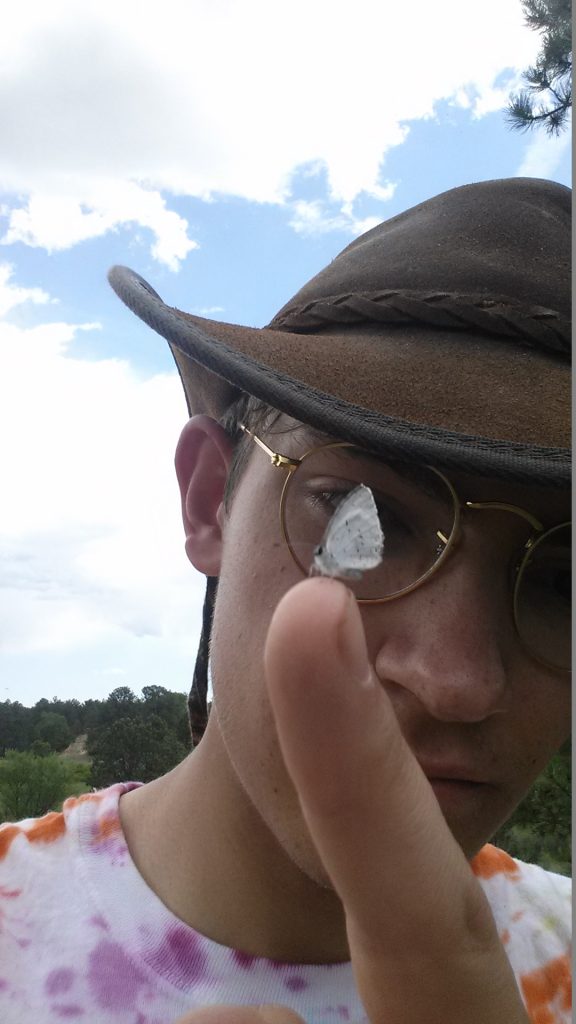
Tristan with female hops blue butterfly. Photo by Tristan Kubik

Kira Paik (2017) and Toryn Walton (2018)
Little brown bat roosts: spatial distribution and characteristics of little brown bat day roosts and maternity roosts in the Yampa Valley of Colorado
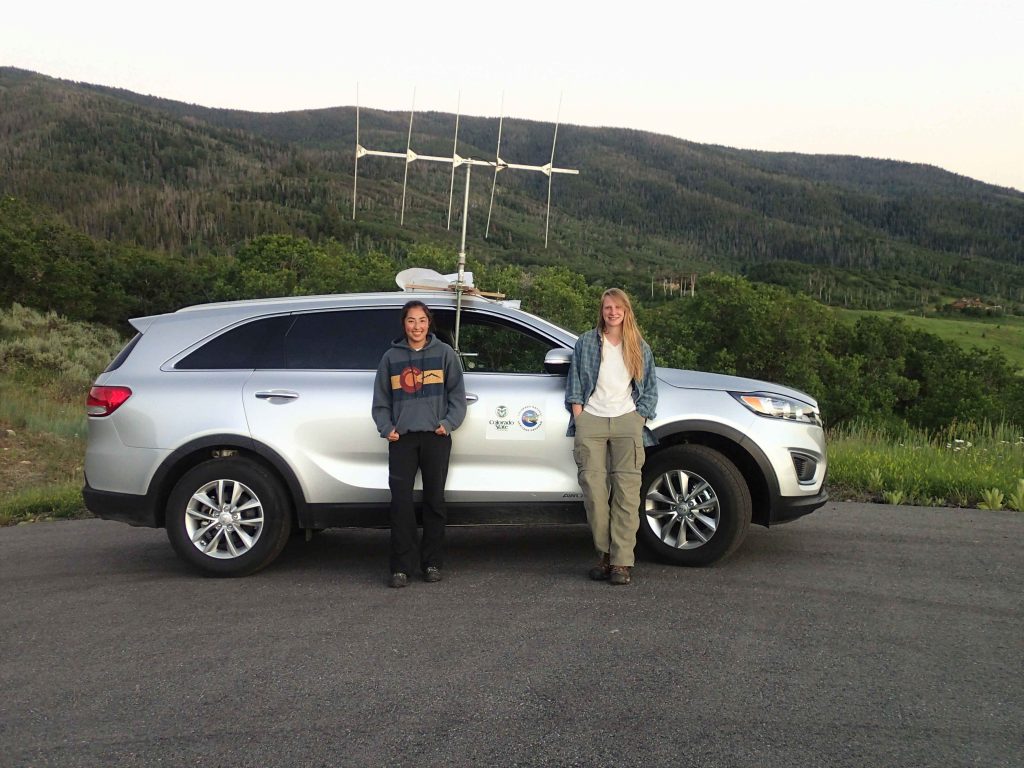
Kira is now pursuing her Master’s degree in fisheries biology at Colorado State University.
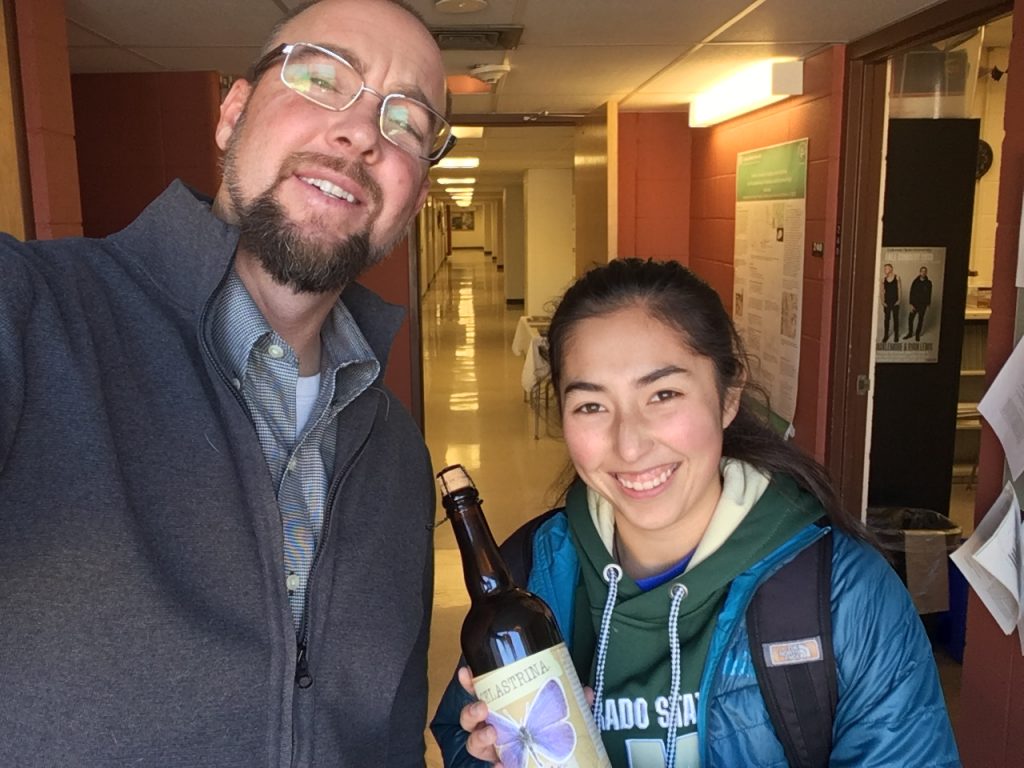
Kira with her commemorative Celastrina bottle
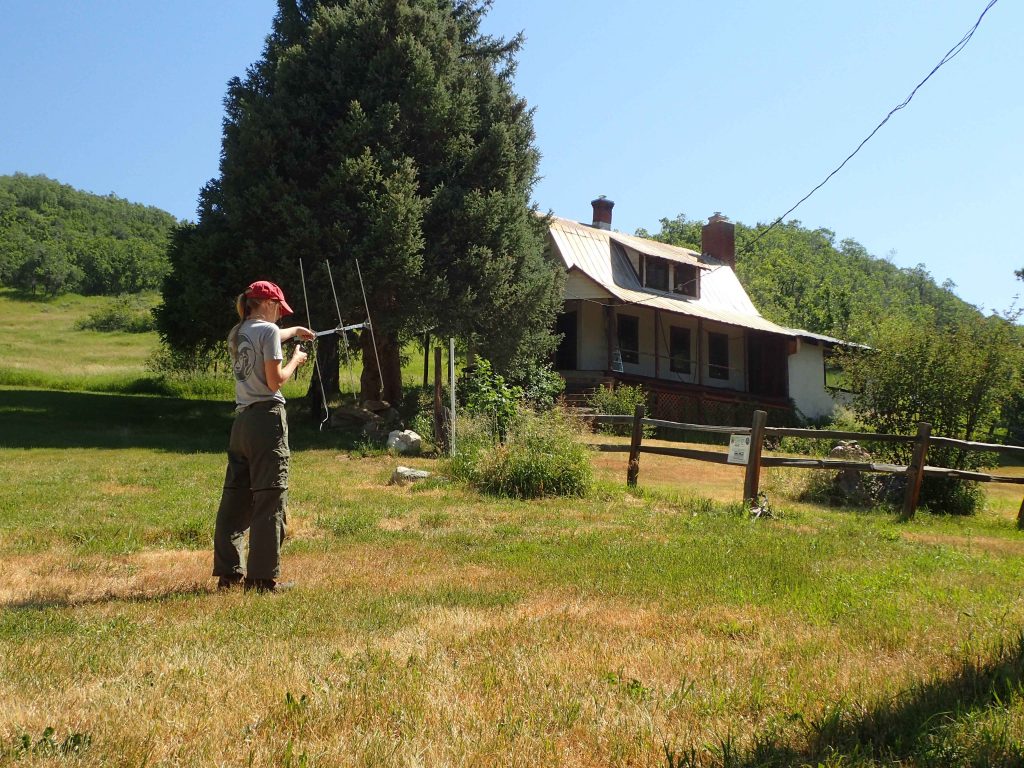
Nina Phillips (2018)
Patch occupancy and habitat of the Ovenbird (Seiurus aurocapilla) at the U.S. Air Force Academy.
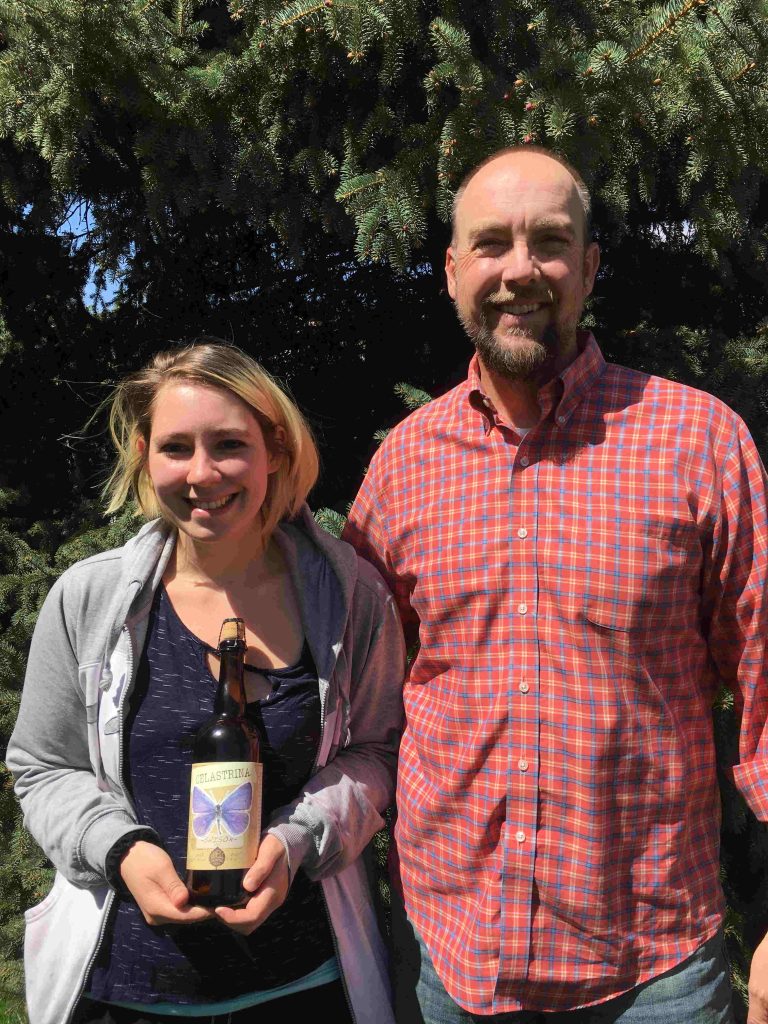
Emily Fitzjohn (2019)
Estimating abundance and density of the endangered Pagosa skyrocket (Ipomopsis polyantha)
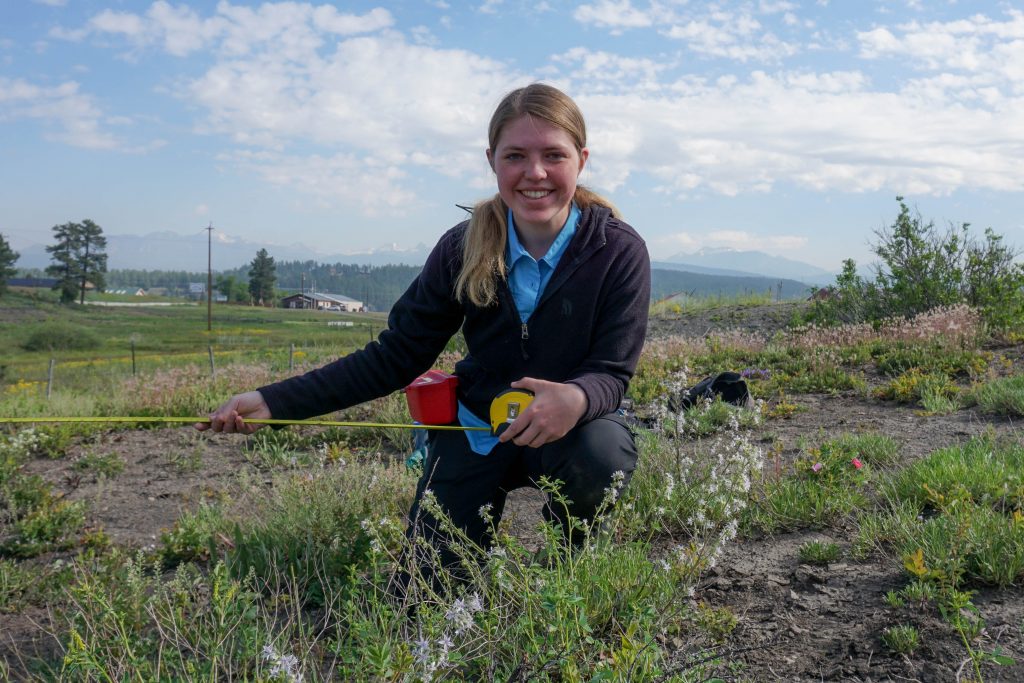
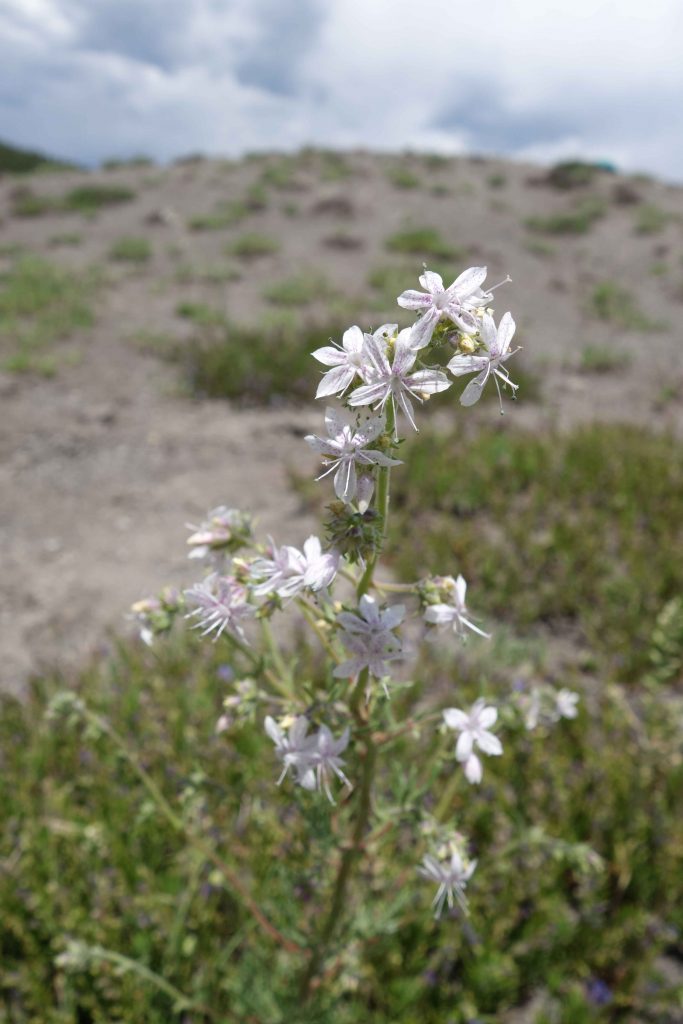
Hailee Nolan (2021)
Hailee (right) conducted research with Dr. Emily Mooney (left) at University of Colorado, Colorado Springs, to understand hops flower phenology and the chemicals hops blue butterfly larvae provide to mutualistic ants.
